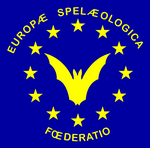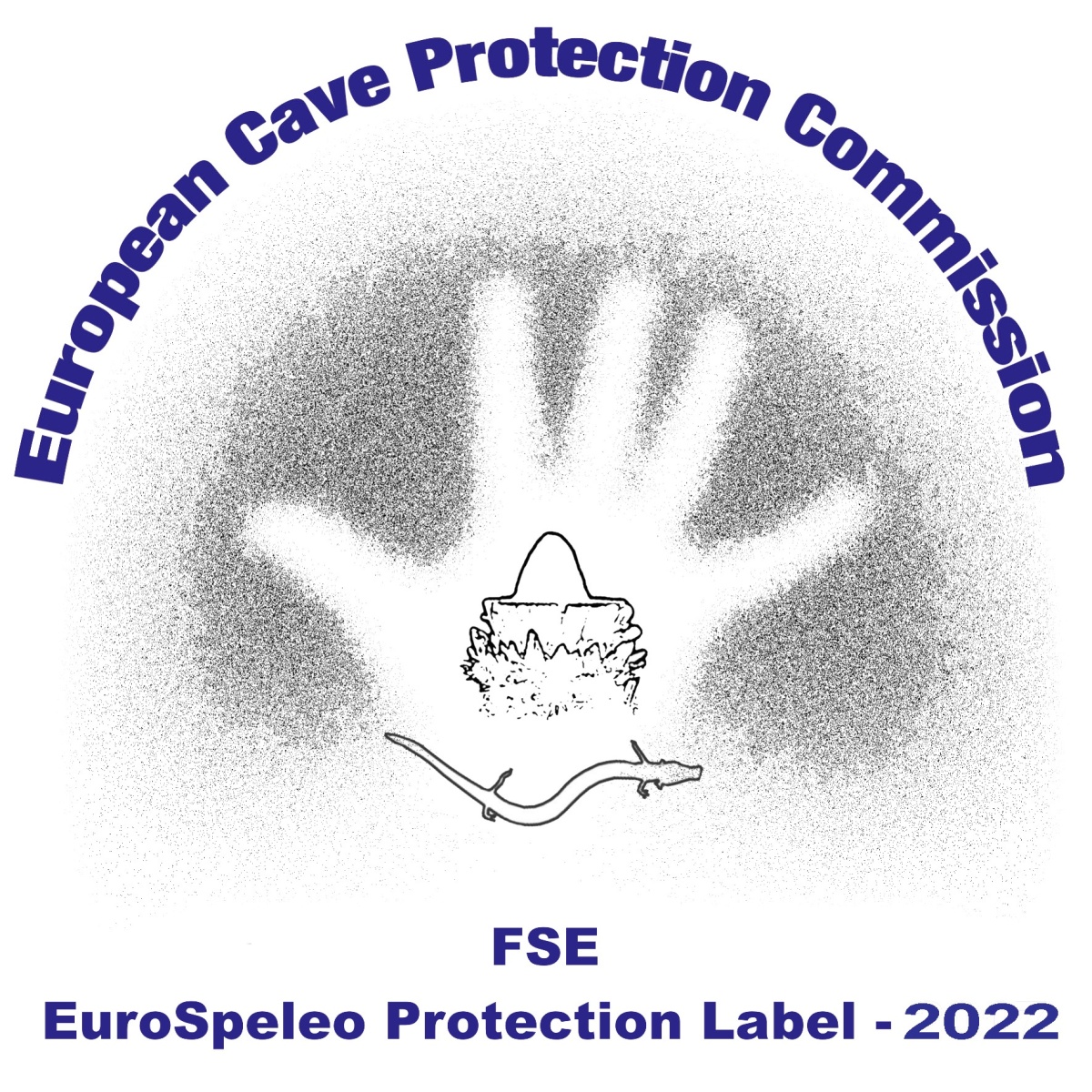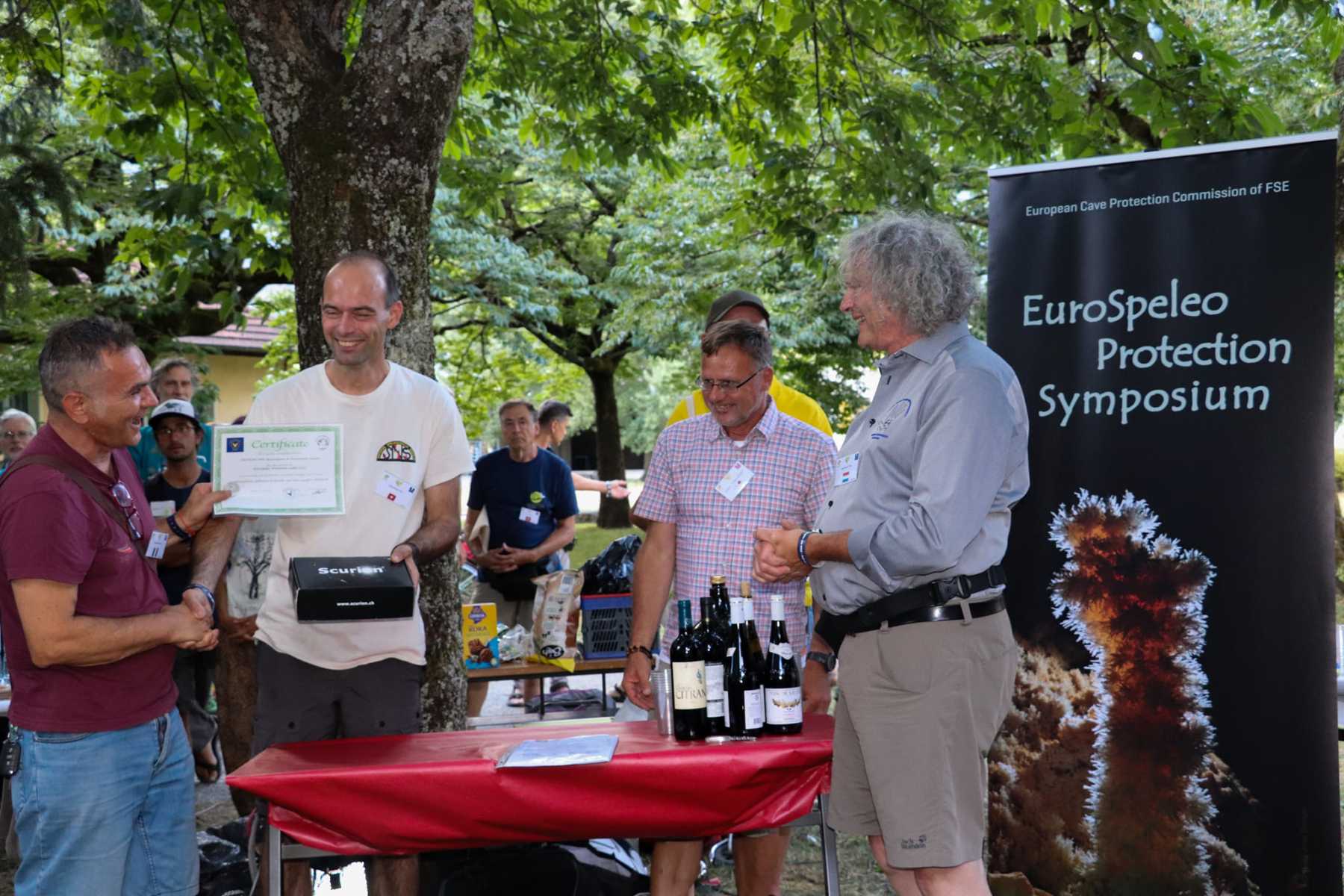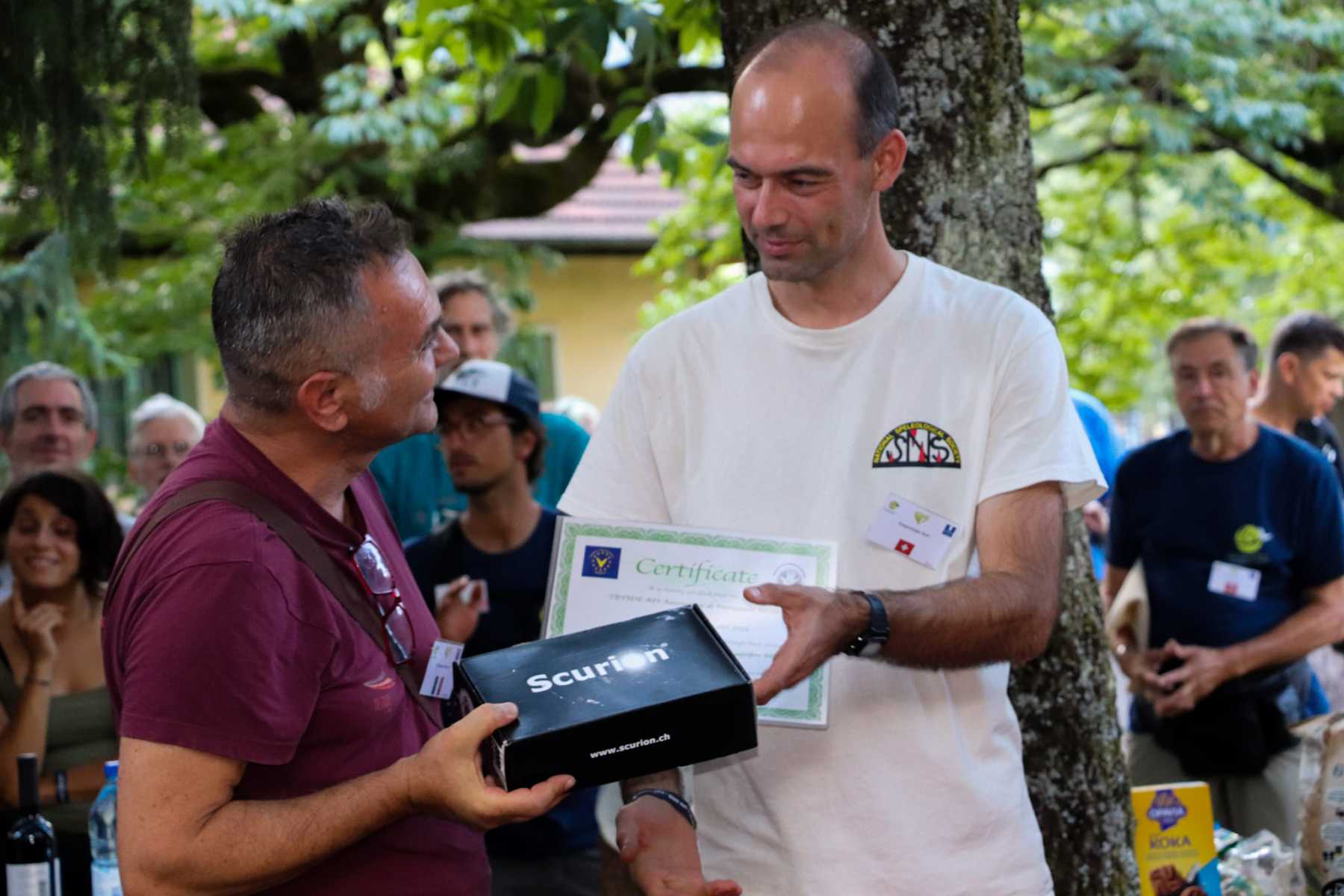The EuroSpeleo protection Label 2022 was granted to the Italian project “Microplastic Pollution in Karstic and Cave Aquifers MPKCA“.
The MPKCA Project was awarded during a presentation and a small ceremony at the 18th International Congress of Speleology ICS in Le Bourget-du-Lac (France) and received a financial grant of 800 EUR as well as a headlamp from FSE sponsor Scurion.
Microplastics (plastic sized <5 mm) are a heterogeneous group of solid polymers containing particles that origins from primary production or from the degradation of larger plastic materials (secondary production). Microplastic particles are a global problem. A growing volume of microplastics is found in the environment, including the sea, and in food and drinking water also coming from karst aquifers.
Once in the environment, microplastics do not biodegrade and tend to accumulate unless they are specifically designed to biodegrade. There are increasing concerns about the presence of microplastics in different ecosystems (such as in groundwater), their impact on the environment and human health.
However, microplastic pollution in caves and karst aquifers is still poorly studied and the main goal of the MPKCA project of the Federazione Speleologia Campana (Italy) is to create specific sample methods and equipment for research in caves and karst springs, to be shared with the international speleological community.
For some of the resurgences examined (where the location of the upstream sinkhole is known) we expect to find microplastics. For resurgences without any known inflow the situation needs to be verified. The plastic waste arriving in a cave pollutes the underground habitat but we do not know yet how much microplastic is generated inside the caves by the flow of the water or already enters the caves with surface or underground flows respectively. Consequently, the project will target these questions.
The projects aims to be a pilot project which can be extended to the whole territory of Italy. Also, not only speleological organisations could be involved in the project to improve the protection of karst waters and caves. In the long term the capacity of speleologists in assessing and studying the microplastic contamination in caves will be increased.



